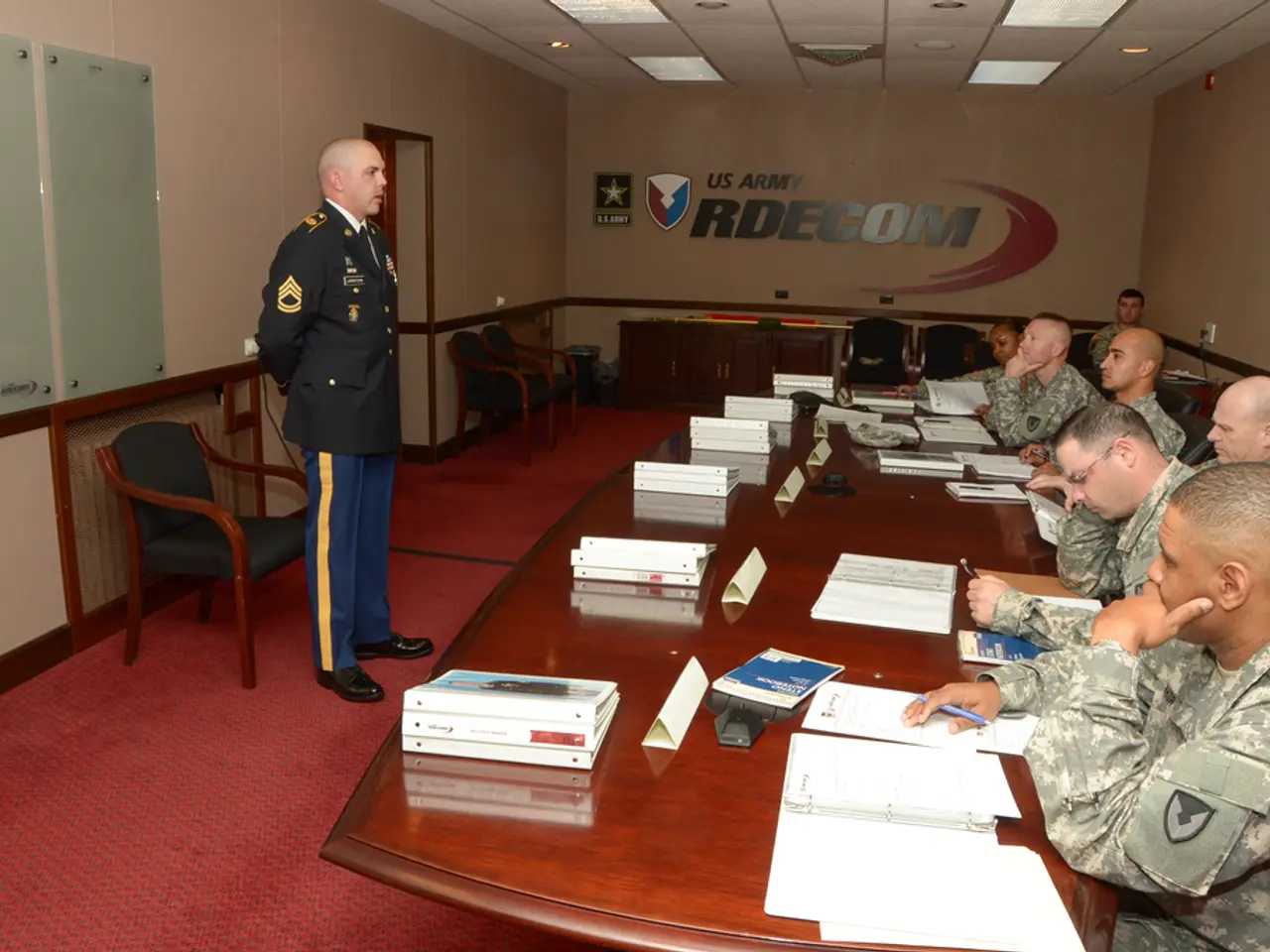Military leader orders West Point to revoke appointment of Biden administration's cybersecurity director
The U.S. Military Academy at West Point is preparing for a new academic year with a renewed focus on equipping future officers for the modern battlefield. However, a recent development has stirred controversy, as Jen Easterly, a former Director of the Cybersecurity and Infrastructure Security Agency (CISA), was announced as a hire at West Point, only to be removed shortly after due to political backlash [1].
Easterly, an Army combat veteran and West Point graduate, played a significant role in advancing identity security as a core element of zero trust architecture across the U.S. government during her tenure at CISA. She was a vocal advocate for securing election infrastructure, combating online disinformation, and addressing evolving cyber threats [2][5].
Easterly’s work at CISA, which included strengthening cybersecurity resilience and emphasising identity security within zero trust frameworks, was widely praised by cybersecurity experts. However, her efforts in these areas also sparked political controversy, particularly in relation to her advocacy for election security initiatives [1].
In July 2025, the U.S. Secretary of the Army directed West Point to terminate Easterly's service agreement, citing unspecified concerns. This action appears linked to political backlash stemming from Easterly’s advocacy for election security and combating disinformation, similar to the treatment of her predecessor Chris Krebs, who was dismissed after contradicting false claims of election fraud and faced subsequent politicized investigations and clearance revocations [1].
The controversy surrounding Easterly's appointment at West Point has led to accusations from far-right activists like Laura Loomer, who claimed that "Biden holdovers" at the Defense Department were undermining the Trump administration [3].
In response, Secretary Dan Driscoll directed West Point to review its hiring practices, barring outside groups from choosing employees at West Point [4]. Pentagon spokesperson Sean Parnell stated that West Point is not turning cadets into censorship activists, but rather focusing on turning them into warriors and leaders [6].
The controversy reflects broader tensions around federal cybersecurity leadership and the politicization of election security efforts. Despite the controversy, Easterly’s work at CISA, and her contributions to integrating identity security within a zero trust approach across U.S. government infrastructure, continue to be recognised and valued by cybersecurity experts [1][2][3].
[1] https://www.reuters.com/world/us/white-house-removes-cybersecurity-official-easterly-amid-political-pressure-2021-12-16 [2] https://www.wired.com/story/jen-easterly-cybersecurity-chief-biden-administration/ [3] https://www.politico.com/news/2021/07/15/jen-easterly-cybersecurity-official-fired-499509 [4] https://www.armytimes.com/news/your-army/2021/07/15/west-point-orders-review-of-hiring-practices-after-political-pressure-to-fire-jen-easterly/ [5] https://www.brookings.edu/research/jen-easterly-cybersecurity-and-election-security-in-the-biden-administration/ [5] https://www.politico.com/news/2021/07/15/jen-easterly-cybersecurity-official-fired-499509
Politics surrounding the hire of Jen Easterly at West Point has become intertwined with war-and-conflicts and policy-and-legislation, as her advocacy for election security and combating disinformation has sparked political controversy. The controversy has spread to general news, with far-right activists accusing "Biden holdovers" at the Defense Department of undermining the Trump administration. This incident highlights the politicization of federal cybersecurity leadership and the evolving role of politics in shaping policy and legislation related to cybersecurity and election security efforts.







